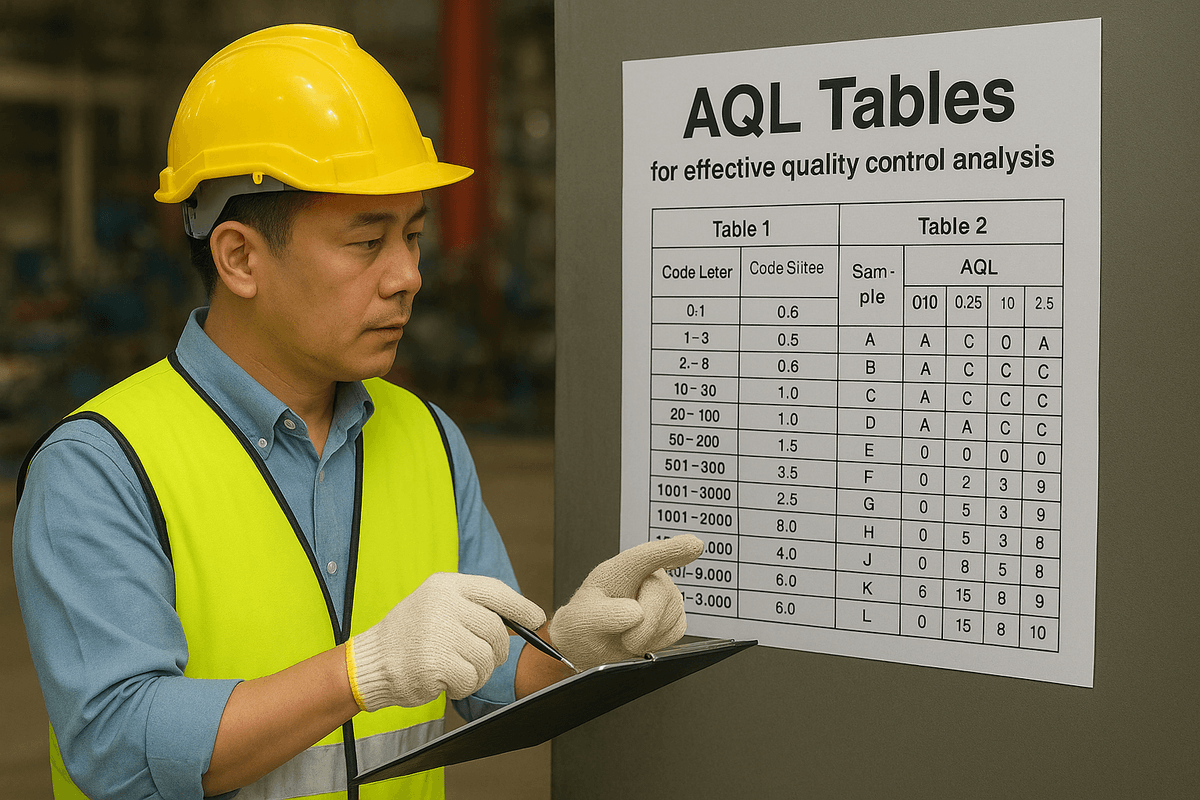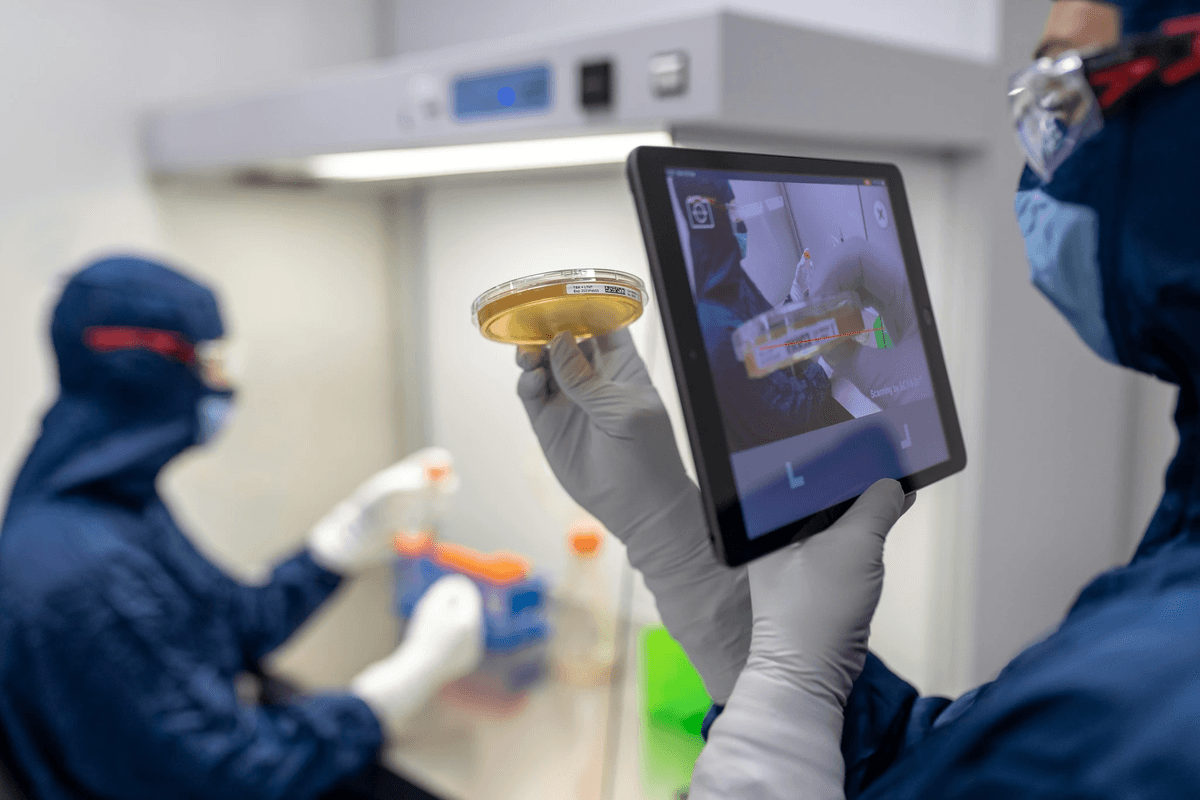Introduction
In today's fast-paced world, ensuring that products and services meet high standards is more critical than ever. This is where third-party inspection comes into play, serving as a vital cog in the machinery of quality control. By employing an unbiased external party to conduct thorough evaluations, businesses can enhance their credibility and ensure compliance with industry standards.
Understanding Third-Party Inspection
Third-party inspection refers to the process of having an independent organization evaluate products or services to ensure they meet specified requirements. This practice is not just about ticking boxes; it’s about guaranteeing that what you offer is safe, reliable, and up to par with market expectations. In sectors like manufacturing and construction, third-party inspections are essential for maintaining integrity and trust among consumers.
Importance of Quality Control
Quality control is the backbone of any successful business strategy; it ensures that every product or service delivered meets a certain standard of excellence. Effective quality control minimizes defects and reduces costs associated with returns or rework, ultimately boosting customer satisfaction. When coupled with third-party inspection, companies can further solidify their commitment to delivering top-notch products while mitigating risks associated with poor quality.
Scope of Electrical Inspections
Electrical inspections specifically focus on evaluating the safety and functionality of electrical systems within buildings or products. These inspections are crucial for identifying potential hazards such as faulty wiring or non-compliance with safety regulations before they lead to more severe consequences. With the increasing complexity of electrical installations, regular third-party electrical inspections have become indispensable in safeguarding lives and property alike.
What is Third-Party Inspection?

When it comes to ensuring that products meet quality standards, third-party inspection plays a pivotal role. This process involves an independent organization evaluating products or services to verify compliance with specified requirements. In the context of electrical inspections, third-party agencies help ensure that electrical systems and components are safe, reliable, and up to code.
Definition and Overview
Third-party inspection refers to an unbiased evaluation conducted by a separate entity not involved in the manufacturing or production process. This independent assessment serves as a safeguard against conflicts of interest, ensuring that the results are impartial and trustworthy. In electrical inspections specifically, this means checking everything from wiring integrity to compliance with safety regulations.
Role in Quality Assurance
The primary role of third-party inspection in quality assurance is to provide an objective assessment of products before they reach consumers or the market. By identifying potential issues early on, these inspections help prevent costly recalls and enhance overall product reliability. In the realm of electrical inspections, this could mean catching faulty wiring or subpar materials before they become hazardous.
Industry Applications
Third-party inspections are utilized across various industries, including manufacturing, construction, and especially in electrical work where safety is paramount. Whether it's ensuring compliance with industry standards or verifying product specifications, these inspections provide peace of mind for businesses and consumers alike. From large-scale industrial projects to small residential installations, the impact of thorough third-party electrical inspections cannot be overstated.
Benefits of Third-Party Inspection

This independent evaluation helps businesses maintain high standards, ultimately leading to enhanced product quality. By utilizing specialized inspectors, companies can identify potential issues early on, ensuring that their electrical inspections meet or exceed industry regulations.
Enhanced Product Quality
One of the standout benefits of third-party inspection is the significant boost in product quality it provides. These inspections offer an unbiased assessment that highlights areas for improvement that internal teams might overlook due to familiarity or bias. By integrating third-party electrical inspections into their processes, businesses can refine their products and ensure they meet customer expectations consistently.
Moreover, with rigorous testing protocols in place, companies are more likely to catch defects before products reach consumers. This proactive approach not only reduces returns and complaints but also fosters a culture of continuous improvement within organizations. Ultimately, enhanced product quality through third-party inspection translates to better market competitiveness and customer satisfaction.
Risk Reduction for Businesses
Risk management is crucial in any industry, and third-party inspection serves as a vital tool for reducing potential hazards associated with product failures or non-compliance issues. By having an external party conduct thorough electrical inspections, businesses can mitigate risks related to safety violations or regulatory penalties that could arise from subpar products. This added layer of scrutiny ensures that all safety standards are met before products hit the market.
Additionally, identifying risks early allows companies to address them swiftly without incurring significant costs down the line. Whether it's avoiding costly recalls or preventing accidents due to faulty wiring, third-party inspections help safeguard both brand reputation and financial stability. In essence, these inspections create a buffer against unforeseen liabilities that could jeopardize business operations.
Building Consumer Trust
In today's competitive marketplace, building consumer trust is paramount—and third-party inspection plays a pivotal role in achieving this goal. When customers see that a company employs independent inspectors for their electrical inspections, it instills confidence in the quality and safety of the products being offered. Transparency about the inspection process signals accountability and commitment to excellence.
Furthermore, positive reviews stemming from reliable third-party evaluations can significantly enhance brand loyalty among consumers who prioritize safety and quality assurance in their purchasing decisions. As word spreads about a company’s dedication to thorough inspections and adherence to standards, it fosters an image of reliability in the eyes of potential buyers. Ultimately, building consumer trust through third-party inspection not only drives sales but also cultivates long-term relationships with customers.
How Third-Party Inspection Works

This systematic approach involves independent inspectors evaluating products or services against predefined standards. Particularly in the realm of electrical inspections, this process helps identify potential issues before they become major problems, ensuring compliance and safety.
Process Overview
The third-party inspection process typically begins with a thorough assessment of the project requirements and applicable standards. Inspectors then conduct on-site evaluations, which may include visual inspections, measurements, and testing to verify that products meet quality specifications. Following the evaluation, a detailed report is generated that outlines findings, recommendations, and any necessary corrective actions related to the electrical inspections performed.
This structured approach not only enhances product quality but also provides businesses with peace of mind knowing their operations are being scrutinized by unbiased professionals. Moreover, these inspections serve as an essential checkpoint in the supply chain management process. By identifying issues early on during electrical inspections, companies can avoid costly recalls or safety hazards that could arise later down the line.
Key Players in the Inspection Process
Several key players are involved in the third-party inspection process to ensure its effectiveness and reliability. First and foremost are the independent inspectors themselves—trained professionals with expertise in specific industries who conduct evaluations impartially. Their role is crucial as they bring an objective perspective to assess compliance with safety standards during electrical inspections.
Next up are the businesses seeking these services; they provide necessary documentation and access for inspectors while also collaborating on any identified issues needing resolution. Additionally, regulatory bodies come into play by establishing guidelines that ensure consistency across various sectors; their involvement adds an extra layer of credibility to third-party inspection processes. Together, these players create a robust framework for effective quality assurance.
Documentation and Reporting
Documentation is one of the most critical aspects of third-party inspection because it creates a formal record of findings and recommendations from electrical inspections conducted throughout various stages of production or installation. Detailed reports typically include information such as test results, compliance status, photographs documenting conditions observed during inspections, and any corrective actions required by businesses.
These reports not only serve as proof of compliance but also offer insights into areas for improvement within production processes or product design—valuable information for continuous enhancement efforts! Moreover, maintaining comprehensive documentation helps organizations demonstrate adherence to industry regulations when faced with audits or inquiries from stakeholders down the line.
In summary, understanding how third-party inspection works equips businesses with essential knowledge for enhancing product quality while mitigating risks associated with non-compliance or safety hazards during electrical inspections.
Importance of Electrical Inspections
Electrical inspections are crucial in ensuring that installations and devices meet safety standards and regulatory compliance. A thorough inspection can prevent accidents, equipment failure, and costly repairs down the line. By integrating third-party inspection services into their operations, businesses can significantly enhance their safety protocols.
Ensuring Safety and Compliance
These inspections help identify potential hazards such as faulty wiring, overloaded circuits, or improper grounding that could lead to fires or electrocution. Compliance with local codes and regulations is also vital; failing to adhere can result in fines or legal complications for businesses.
Moreover, third-party inspection services provide an unbiased evaluation of electrical systems, ensuring that all components meet industry standards. This independent assessment not only promotes a culture of safety but also reassures stakeholders that the organization prioritizes compliance. Ultimately, investing in regular inspections fosters a safer work environment for employees and customers alike.
Common Issues Identified
During electrical inspections, several common issues frequently surface that can jeopardize safety and performance. One major concern is outdated wiring systems that may not support modern energy demands, leading to overheating or failures. Inadequate circuit protection devices like fuses or breakers often go unnoticed until an incident occurs.
Another prevalent issue includes poor installation practices which might involve improper connections or insufficient grounding techniques. These oversights can escalate into larger problems if left unchecked. Regular third-party inspections help catch these deficiencies early on so corrective measures can be taken before they evolve into serious hazards.
Lastly, moisture intrusion is a significant risk factor identified during electrical inspections—especially in older buildings where seals may have degraded over time. This moisture can lead to corrosion of wires and connections, increasing the likelihood of short circuits or fires if not addressed promptly. By recognizing these common issues through diligent inspection processes, businesses can maintain safer environments for everyone involved.
Case Studies in Electrical Inspections
Examining real-world case studies highlights the critical role of third-party electrical inspections in mitigating risks and enhancing safety protocols across various industries. For instance, consider a manufacturing plant where an annual inspection revealed multiple instances of faulty wiring due to age and wear-and-tear—issues overlooked during routine internal checks led to near-miss incidents involving employees working near machinery powered by those circuits.
In another scenario involving a commercial building renovation project, third-party inspectors identified non-compliance with local codes regarding emergency lighting systems before installation began—a costly mistake was avoided thanks to proactive intervention from inspectors who ensured adherence from the get-go instead of facing penalties post-installation.
These examples underscore how essential thorough electrical inspections are for preventing accidents while promoting compliance within organizations—ultimately leading them toward greater operational efficiency and trustworthiness among clients and partners alike.
Choosing the Right Inspection Company

Selecting the right inspection company can feel like finding a needle in a haystack, especially when it comes to third-party inspection and electrical inspections. With numerous options available, businesses must ensure they partner with a reliable and competent firm that aligns with their quality assurance goals. A well-chosen inspection company not only enhances product quality but also mitigates risks associated with compliance and safety.
Factors to Consider
When evaluating potential inspection companies, there are several factors worth considering. First, check for industry certifications and accreditations; these credentials indicate that the company adheres to established standards in third-party inspection and electrical inspections. Next, assess their experience in your specific industry; familiarity with your sector's unique challenges can make a significant difference in the effectiveness of their inspections.
Additionally, consider the company's reputation and client testimonials; feedback from previous clients can provide valuable insights into their reliability and service quality. Don't overlook the importance of technology used during inspections—state-of-the-art equipment often leads to more accurate results in electrical inspections. Finally, evaluate customer support services; responsive communication is crucial for addressing any concerns or questions throughout the inspection process.
Why China Inspection Pro Stands Out
Among the myriad options available for third-party inspection services, China Inspection Pro has emerged as a frontrunner worth considering for electrical inspections specifically tailored to international businesses sourcing from China. Their team brings extensive knowledge of both local regulations and international standards which ensures compliance without compromising on quality control measures.
What sets China Inspection Pro apart is not just their rigorous attention to detail but also their commitment to transparency throughout the entire process—from pre-inspection planning through final reporting. They utilize advanced technologies combined with experienced inspectors who excel at identifying potential issues before they escalate into costly problems down the line. This proactive approach fosters trust among clients looking for reliable partners dedicated to delivering exceptional results.
Conclusion
In wrapping up our exploration of third-party inspection and its significance, it's clear that this practice offers numerous benefits across various industries. From enhancing product quality to building consumer trust, the advantages of incorporating third-party inspections are manifold. Particularly in electrical inspections, these benefits take on an even greater importance due to the inherent risks associated with electrical systems.
Summary of Third-Party Inspection Benefits
The primary advantage of third-party inspection lies in its ability to provide an unbiased assessment of products and processes. By involving an external party, businesses can ensure that their products meet established standards without any conflict of interest. Moreover, this independent verification not only enhances product quality but also significantly reduces risks associated with compliance and safety.
In addition to improving product quality, third-party inspection fosters a culture of accountability within organizations. Companies that embrace this practice are more likely to identify issues early on, preventing costly recalls or legal challenges down the line. Ultimately, by investing in third-party inspections, businesses can bolster their reputation and secure consumer confidence in their offerings.
The Critical Role of Electrical Inspections
Electrical inspections play a pivotal role in maintaining safety standards and compliance with regulations. Given the potential hazards associated with faulty electrical systems, regular inspections are essential for identifying common issues such as wiring problems or equipment malfunctions before they escalate into serious incidents. This proactive approach not only safeguards lives but also protects businesses from liability claims resulting from negligence.
Moreover, electrical inspections often reveal opportunities for improvement that companies might overlook without external input. By addressing these concerns head-on through thorough evaluations conducted by qualified inspectors, organizations can optimize their operations and enhance overall efficiency. In a world where safety is paramount, the importance of rigorous electrical inspections cannot be overstated.
Next Steps for Businesses Seeking Quality Assurance
For businesses eager to elevate their quality assurance practices through third-party inspection services, taking action is crucial. Start by researching reputable inspection companies specializing in your industry—look for those with a track record of excellence in conducting electrical inspections specifically tailored to your needs. Consider factors such as certifications, client reviews, and experience when making your selection.
Once you've identified potential partners for third-party inspection services, engage them in discussions about your specific requirements and expectations regarding electrical inspections. This collaboration will help ensure that you choose a company capable of delivering valuable insights while adhering to industry standards and best practices. By prioritizing quality assurance through effective partnerships with trusted inspectors, your business will be well-positioned for success.
